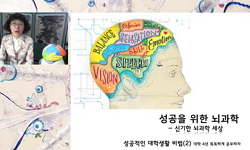The free will of humans is an important issue in philosophy and psychology. Many scholars who have studied human morality argue that free will is an essential factor in moral decision making. However, these days, with rapid development in the natural ...
http://chineseinput.net/에서 pinyin(병음)방식으로 중국어를 변환할 수 있습니다.
변환된 중국어를 복사하여 사용하시면 됩니다.
- 中文 을 입력하시려면 zhongwen을 입력하시고 space를누르시면됩니다.
- 北京 을 입력하시려면 beijing을 입력하시고 space를 누르시면 됩니다.

Achievements in Natural Science, the Possibility of the Free Will and Autonomous Morality: With Consideration of Moral Psychology and its Educational Implementation
한글로보기https://www.riss.kr/link?id=A104199250
- 저자
- 발행기관
- 학술지명
- 권호사항
-
발행연도
2010
-
작성언어
English
-
주제어
Free will ; autonomous morality ; moral psychology ; moral education ; neuroscience ; sociobiology ; 자유의지 ; 자율적 도덕성 ; 도덕 심리학 ; 도덕교육 ; 뇌 과학 ; 사회생물학
-
등재정보
KCI등재
-
자료형태
학술저널
-
수록면
1-28(28쪽)
-
KCI 피인용횟수
1
- DOI식별코드
- 제공처
-
0
상세조회 -
0
다운로드
부가정보
다국어 초록 (Multilingual Abstract)
The free will of humans is an important issue in philosophy and psychology. Many scholars who have studied human morality argue that free will is an essential factor in moral decision making. However, these days, with rapid development in the natural sciences, a powerful argument can be made that the human thinking process is determined by past factors. This is the argument of determinism. In particular, neuroscience, sociobiology and other fields in biology that directly deal with human cognition have sought to determine the scientific mechanisms of the human thinking process. Hence, many people argue that free will and human autonomous morality are threatened by the results of natural science. However, this study argues that free will and human morality can be compatible from a deterministic standpoint. In this process, firstly, a theoretical background in the natural sciences of physics, cosmology, and cognitive science is reviewed. Subsequently, through philosophical explanations of the relationship between scientific studies, the existence of free will, and human morality, this study investigates how scientific explanations can be compatible with free will and autonomous morality. Finally, the study discusses the relationships among the results of the investigation, moral psychology and its educational implementation, and how scientific achievements can contribute to moral psychology and education.
참고문헌 (Reference)
1 Hawkes, K, "Why Hunter-Gatherers Work: An Ancient Version of the Problem of Public Goods" 34 (34): 341-361, 1993
2 Narvaez, D, "Triune ethics: The neurobiological roots of our multiple moralities" 26 : 95-119, 2008
3 Churchland, P. S, "Towards a Cognitive Neurobiology of the Moral Virtues" (17) : 83-96, 1998
4 Pickover, C. A, "Time: A Traveler’s Guide" Oxford University Press 1998
5 Mehlberg, H, "Time, Causality, and the Quantum Theory: Essay on the Causal Theory of Time" Reidel 1980
6 Fehr, E, "The nature of human altruism" 425 : 785-791, 2003
7 Singer, P, "The expanding circle: ethics and sociobiology" Farrar, Straus & Giroux 1981
8 Gallagher, M, "The amygdala complex: Multiple roles in associative learning and attention" 99 : 11771-11776, 1994
9 Hughes, R. I. G, "The Structure and Interpretation of Quantum Mechanics" Harvard University Press 1990
10 Trigg, R, "The Shaping of Man: Philosophical Aspects of Sociobiology" Basil Blackwell Publisher Limited 1982
1 Hawkes, K, "Why Hunter-Gatherers Work: An Ancient Version of the Problem of Public Goods" 34 (34): 341-361, 1993
2 Narvaez, D, "Triune ethics: The neurobiological roots of our multiple moralities" 26 : 95-119, 2008
3 Churchland, P. S, "Towards a Cognitive Neurobiology of the Moral Virtues" (17) : 83-96, 1998
4 Pickover, C. A, "Time: A Traveler’s Guide" Oxford University Press 1998
5 Mehlberg, H, "Time, Causality, and the Quantum Theory: Essay on the Causal Theory of Time" Reidel 1980
6 Fehr, E, "The nature of human altruism" 425 : 785-791, 2003
7 Singer, P, "The expanding circle: ethics and sociobiology" Farrar, Straus & Giroux 1981
8 Gallagher, M, "The amygdala complex: Multiple roles in associative learning and attention" 99 : 11771-11776, 1994
9 Hughes, R. I. G, "The Structure and Interpretation of Quantum Mechanics" Harvard University Press 1990
10 Trigg, R, "The Shaping of Man: Philosophical Aspects of Sociobiology" Basil Blackwell Publisher Limited 1982
11 Dawkins, R, "The Selfish Gene" Oxford University Press 1999
12 Kohlberg, L, "The Psychology of Moral Development: The Nature and Validity of Moral Stages" Harper & Row 1984
13 Kohlberg, L, "The Philosophy of Moral Development: Moral Stages and the Idea of Justice" Harper & Row 1981
14 Haidt, J, "The New Synthesis in Moral Psychology" 316 : 998-1002, 2007
15 Casebeer, W. D, "The Neural Mechanisms of Moral Cognition: A Multiple-Aspect Approach to Moral Judgement and Decision-Making" (18) : 169-194, 2003
16 Haidt, J, "The Moral Emotions in:Handbook of Affective Sciences" Oxford University Press 852-870, 2003
17 Center for History of Physics, "The Mechanical Universe"
18 Van Inwagen P, "The Incompatibility of Free will and Determinism. in: Free will" Blackwell Publishing 71-82, 2002
19 Haidt, J, "The Emotional Dog and its Rational Tail: A Social Intuitionist Approach to Moral Judgment" 108 : 814-834, 2001
20 Nowak, M. A, "The Dynamics of Indirect Reciprocity" 194 : 561-574, 1998
21 Darwin,C, "The Descent of Man, and Selection in Relation to Sex. in: From So Simple a Beginning: The Four Great Books of Charles Darwin" Norton & Company 76-1252, 2006
22 Piaget, J, "The Construction of Reality in the Child" Routledge 1955
23 LeDoux, J. E, "Synaptic Self" Viking 2002
24 Maren, S, "Synaptic Mechanisms of Associative Memory in the Amygdala" 47 : 783-786, 2005
25 Wilson, E. O, "Sociobiology: The New Synthesis" The Belknap Press of Harvard University Press 1982
26 Wilson, E. O, "Sociobiology: The Abridged Edition" Harvard University Press 1980
27 Holcomb, H. R, "Sociobiology" The Stanford Encyclopedia of Philosophy 2005
28 Pollock, G, "Reciprocity and the Emergence of Reputation" 159 : 25-37, 1992
29 Wilkinson, G. S, "Reciprocal food sharing in the vampire bat" 308 : 181-184, 1984
30 DeNault, L. K, "Reciprocal altruism between male vampire bats, Desmodus rotundus" 49 : 855-856, 1995
31 Cushing, J. T, "Quantum Mechanics: Historical Contingency and the Copenhagen Hegemony" The University of Chicago Press 1994
32 Piaget, J, "Psychology of Intelligence" Adams & CO 1960
33 Serway, R. A, "Principles of Physics: a Calculus-Based Test 3th ed" Thomson 2001
34 Masters, T, "Practical Neural Network Recipes in C++" Academic Press 1993
35 Rumpel, S, "Postsynaptic Receptor Trafficking Underlying a Form of Associative Learning" 308 : 83-88, 2005
36 Rest, J. R, "Postconventional Moral Thinking: A Neo-Kohlbergian Approach" Lawrence Erlbaum Associates 1999
37 Salmon, M. H, "Philosophy of the Social Sciences. in: Introduction to the Philosophy of Science" Hackett Publishing Company, Inc 404-424, 1999
38 Churchland, P. S, "Perspectives on Cognitive Neurosciences" 242 : 741-745, 1988
39 Churchland, P. S, "On the Alleged Backwards Referral of Experiences and Its Relevance to the Mind-Body Problem" 48 (48): 165-181, 1981
40 Wilson, E. O, "On Human Nature" Harvard University Press 1978
41 Press, W. H, "Numerical Recipes in C: The Art of Scientific Computing" Cambridge University Press 1992
42 Tozeren, A, "New Biology for Engineers and Computer Scientists" Pearson/Prentice Hall 2003
43 Narvaez, D, "Moral development and behaviour under the spotlight of the neurobilogical sciences" 37 (37): 289-312, 2008
44 Eshleman, A, "Moral Responsibility" The Stanford Encyclopedia of Philosophy 2009
45 Blasi, A, "Moral Character: A Psychological Approach. in: Character Psychology and Character Education" University of Notre dame Press 67-100, 2005
46 Rodrigues, S. M, "Molecular Mechanisms Underlying Emotional Learning and Memory in the Lateral Amygdala" 44 : 75-91, 2004
47 Arfken, G. B, "Mathematical Methods for Physicists" Harcourt/Academic Press 2001
48 Piaget, J, "Le Development Intellectual Chez les Jeunes Enfants" 40 (40): 137-160, 1931
49 Kane, R, "Introduction. in: Free will" Blackwell Publishing 1-27, 2002
50 Schroeder, D, "Internet Encyclopedia of Philosophy"
51 Clarke, R, "Incompatiblist (Nondeterministic) Theories of Free will" The Stanford Encyclopedia of Philosophy 2008
52 Cheney, D. L, "How Monkeys See the World: Inside the Mind of Another Species" University of Chicago Press 1992
53 Green, J. D, "How (and where) Does Moral Judgment Work?" 6 (6): 517-523, 2002
54 Edwards, P, "Hard and Soft Determinism" Blackwell Publishing 59-69, 2002
55 Dennett, D. C, "Freedom Evolves" Viking 2003
56 O'Connor, T, "Free will" The Stanford Encyclopedia of Philosophy 2005
57 Hawley, J. F, "Foundations of Modern Cosmology" Oxford University Press 2005
58 Nowak, M. A, "Evolution of indirect reciprocity by image scoring" 393 : 573-577, 1998
59 Nowak, M. A, "Evolution of indirect reciprocity" 437 : 1291-1298, 2005
60 Pereboom, D, "Determinism al Dente" (29) : 21-45, 1995
61 Wedekind, C, "Cooperation Through Image Scoring in Humans" 288 : 850-852, 2000
62 Beiser, A, "Concepts of Modern Physics" McGraw-Hill 2003
63 Honderich, T, "Compatibilism, Incompatibilism, and the Smart Aleck" 56 (56): 855-862, 1996
64 Hoefer, C, "Causal Determinism" The Stanford Encyclopedia of Philosophy 2008
65 Rest, J. R, "Background: Theory and Research. in: Moral Development in the Professions: Psychology on Applied Ethics" Lawrence Erlbaum Associates Inc 1-26, 1994
66 Aristotle, "Aristotle: The Nicomachean Ethics" The Stanford Encyclopedia of Philosophy 2007
67 Green, J. D, "An fMRI Investigation of Emotional Engagement in Moral Judgment" 293 (293): 2105-2108, 2001
68 Kreyszig, E, "Advanced Engineering Mathematics 9th ed" John Wiley 2006
69 Jeong, C, "A cross-cultural study of the relationships between epistemological beliefs and moral judgment as a psychological foundation for moral education" The University of Georgia 2003
70 Mui, L, "A Computational Model of Trust and Reputation, Proceedings of the 35th Annual Hawaii International Conference on System Sciences" 2002
동일학술지(권/호) 다른 논문
-
Achievements in Natural Science, the Possibility of the Free Will and Autonomous Morality
- 한국도덕윤리과교육학회
- Hyemin Han(한혜민)
- 2010
- KCI등재
-
- 한국도덕윤리과교육학회
- 김태훈(Kim Tae-Hoon)
- 2010
- KCI등재
-
초등학생들의 사회·정서적 능력 함양을 위한 인성교육 통합 프로그램의 효과 분석
- 한국도덕윤리과교육학회
- 이인재(LEE IN JAE)
- 2010
- KCI등재
-
사회과의 다문화교육의 분석을 통한 다문화 교육의 발전 방향 모색
- 한국도덕윤리과교육학회
- 김상돈(Sangdon Kim)
- 2010
- KCI등재
분석정보
인용정보 인용지수 설명보기
학술지 이력
| 연월일 | 이력구분 | 이력상세 | 등재구분 |
|---|---|---|---|
| 2027 | 평가예정 | 재인증평가 신청대상 (재인증) | |
| 2021-01-01 | 평가 | 등재학술지 유지 (재인증) |  |
| 2018-01-01 | 평가 | 등재학술지 유지 (등재유지) |  |
| 2015-01-01 | 평가 | 등재학술지 유지 (등재유지) |  |
| 2014-12-23 | 학회명변경 | 영문명 : The Korean Society For The Study Of Moral Education -> The Korean Society for Moral & Ethics Education |  |
| 2011-01-01 | 평가 | 등재학술지 유지 (등재유지) |  |
| 2009-01-01 | 평가 | 등재학술지 유지 (등재유지) |  |
| 2006-01-01 | 평가 | 등재학술지 선정 (등재후보2차) |  |
| 2005-05-23 | 학술지등록 | 한글명 : 도덕윤리과교육외국어명 : Journal of Moral & Ethics Education |  |
| 2005-01-01 | 평가 | 등재후보 1차 PASS (등재후보1차) |  |
| 2004-01-01 | 평가 | 등재후보 1차 FAIL (등재후보1차) |  |
| 2003-01-01 | 평가 | 등재후보학술지 선정 (신규평가) |  |
학술지 인용정보
| 기준연도 | WOS-KCI 통합IF(2년) | KCIF(2년) | KCIF(3년) |
|---|---|---|---|
| 2016 | 0.6 | 0.6 | 0.63 |
| KCIF(4년) | KCIF(5년) | 중심성지수(3년) | 즉시성지수 |
| 0.59 | 0.57 | 0.961 | 0.24 |




 KCI
KCI






